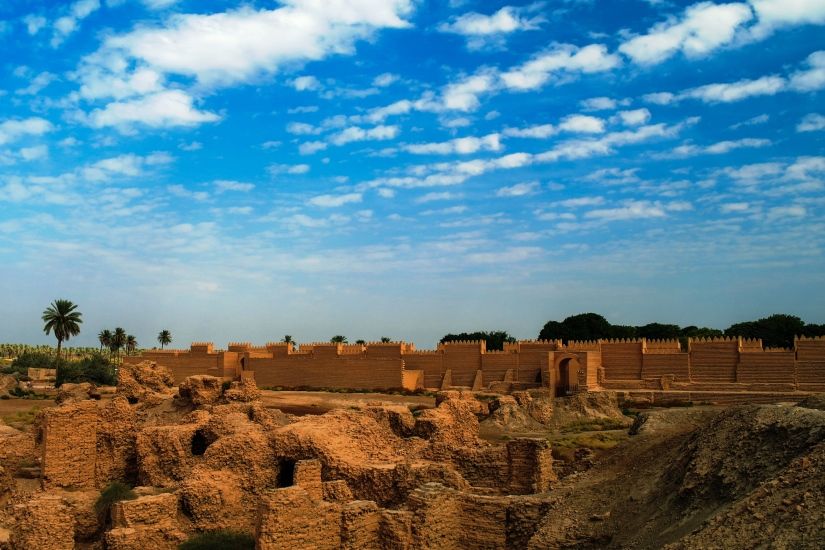BY AHMAD SHUAIBU
Africa stands to gain invaluable insights from both the achievements and the eventual downfall of the Babylonian Empire, leveraging these lessons to confront current obstacles and harness its immense growth potential. The Babylonian Empire’s extraordinary accomplishments and subsequent decline illuminate critical strategies that can empower African nations to tackle contemporary challenges and foster a more robust and sustainable future.
By adopting a governance model inspired by Imam Ali ibn Abi Talib—characterised by justice, stability, economic diversification, education, security, and equality—Africa can sidestep past errors and realise its true capabilities.
Enhance political stability and governance
Advertisement
The deterioration of the Babylonian Empire was significantly attributed to political instability, ineffective leadership, and succession disputes following King Hammurabi’s reign. This internal turmoil undermined central governance and exposed the empire to external threats. Many African nations currently grapple with similar governance issues, political instability, and corruption. Africa can learn from Babylon by strengthening its political systems, ensuring equitable governance, and establishing just institutions. Fostering effective leadership and accountability in governance will cultivate more stable, resilient nations capable of overcoming both internal rifts and external pressures.
Broaden economic foundations
A major contributor to Babylon’s decline was its excessive dependence on agriculture and a lack of economic diversification. The empire’s economy faltered when the agricultural sector declined and external pressures intensified. Numerous African countries today face analogous risks, particularly those reliant on commodities like oil or minerals. To mitigate economic vulnerability, African nations must emphasise economic diversification. By investing in agriculture, manufacturing, technology, and renewable energy, they can cultivate more resilient economies. A diversified economy reduces dependence on fluctuating global markets and provides a safeguard against economic disturbances.
Advertisement
Prioritise education and human resource development
The Babylonian Empire’s decline also coincided with a depletion of skilled personnel, which eroded its administrative efficiency and military strength. The scarcity of trained leaders and administrators contributed to governance failures. For Africa, prioritising investments in education and skills development is paramount for future success. By modernising educational systems, encouraging vocational training, and emphasising STEM (Science, Technology, Engineering, and Mathematics), Africa can prepare its youth with the necessary competencies to drive innovation, entrepreneurship, and effective governance. Empowering the upcoming generation of leaders, scientists, and entrepreneurs will enable Africa to avert stagnation and secure a brighter future.
Bolster military and security frameworks
Once a formidable force, the Babylonian military struggled to adapt to evolving warfare dynamics and was ultimately overcome by more advanced adversaries, such as the Persians. Africa currently faces significant security challenges, including imperial influences over national security structures, terrorism, regional conflicts, and instability in areas like the Sahel, West Africa, and the Horn of Africa. To enhance national and regional security, African countries must modernize their military strategies, invest in defense capabilities, and strengthen regional collaboration. Building frameworks like the African Standby Force and bolstering African Union peacekeeping initiatives will help maintain stability and resilience across the continent, ensuring the safety of both people and states.
Advertisement
Cultivate strong institutions
The decline of Babylon can also be attributed to the erosion of its institutions, particularly due to corruption and inefficiencies within its bureaucracy. For Africa, fostering the development of robust and transparent institutions is vital for effective governance. This entails ensuring judicial independence, tackling corruption, and strengthening the capacity of public services. Established institutions provide the foundation necessary for long-term stability and enable African nations to respond adeptly to challenges, ensuring that they do not repeat the administrative failures that contributed to Babylon’s demise.
Promote social and religious unity
The Babylonian Empire’s reliance on religious authority to establish social cohesion faltered as the priesthood became corrupt, leading to societal divisions. Religion and governance were deeply intertwined in Babylon, and corruption in this relationship weakened its social structure. In Africa, where religion plays an integral role, it is vital to ensure that religious institutions are not exploited for political purposes. Promoting unity in diversity—encompassing religious, ethnic, and cultural dimensions—is crucial for fostering social harmony. Governments should prioritise inclusion, dialogue, and the protection of marginalised communities to sustain strong social cohesion.
Advertisement
Adapt to evolving dynamics
The Babylonian Empire’s failure to adjust to shifting political and military landscapes left it vulnerable to emerging powers. Likewise, Africa must embrace the evolving global arena, characterised by economic, technological, and geopolitical transformations. By fostering innovation, leveraging technology, and establishing global partnerships, African nations can position themselves as leaders in burgeoning industries like renewable energy, biotechnology, and digital technology. Encouraging a culture of innovation—especially through education in STEM disciplines—will enhance Africa’s competitiveness in the 21st century.
Advertisement
Encourage sustainable development and environmental responsibility
Environmental degradation, including deforestation and soil erosion, played a role in Babylon’s agricultural decline. For Africa, adopting sustainable development practices is crucial to avoid similar environmental pitfalls. While Africa is rich in natural resources, challenges such as deforestation, desertification, and climate change jeopardise the continent’s future prosperity. Prioritising renewable energy, green technologies, and environmental conservation will ensure the sustainable management of natural resources for future generations. Regional collaboration on environmental issues will also be essential in tackling shared challenges like climate change.
Advertisement
Advance regional integration and cooperation
The downfall of the Babylonian Empire was partially due to its inability to forge stronger alliances with neighboring kingdoms. Babylon might have benefitted from enhanced regional collaboration to withstand external threats. For Africa, regional integration is a vital element of growth and stability. Initiatives such as the African Union (AU), the African Continental Free Trade Area (AfCFTA), and various regional security policies provide platforms for African nations to collaborate on economic, security, and environmental issues. Promoting intra-African trade, infrastructure development, and cooperative security efforts will create a united and resilient Africa, better prepared to confront both internal and external challenges.
Advertisement
Conclusion
The decline of the Babylonian Empire serves as a rich source of lessons that Africa can utilise for its development. By heeding the political, economic, and social challenges faced by Babylon, African nations can strive towards a more prosperous, stable, and sustainable future. Enhancing governance, diversifying economies, investing in education, bolstering security, and championing environmental stewardship will foster Africa’s ascent. Through regional collaboration, the establishment of strong institutions, and adaptation to contemporary challenges, Africa has the opportunity to unlock its vast potential and emerge as a global powerhouse in the 21st century.
Ahmad Shuaibu Isa can be reached via [email protected]
Views expressed by contributors are strictly personal and not of TheCable.










